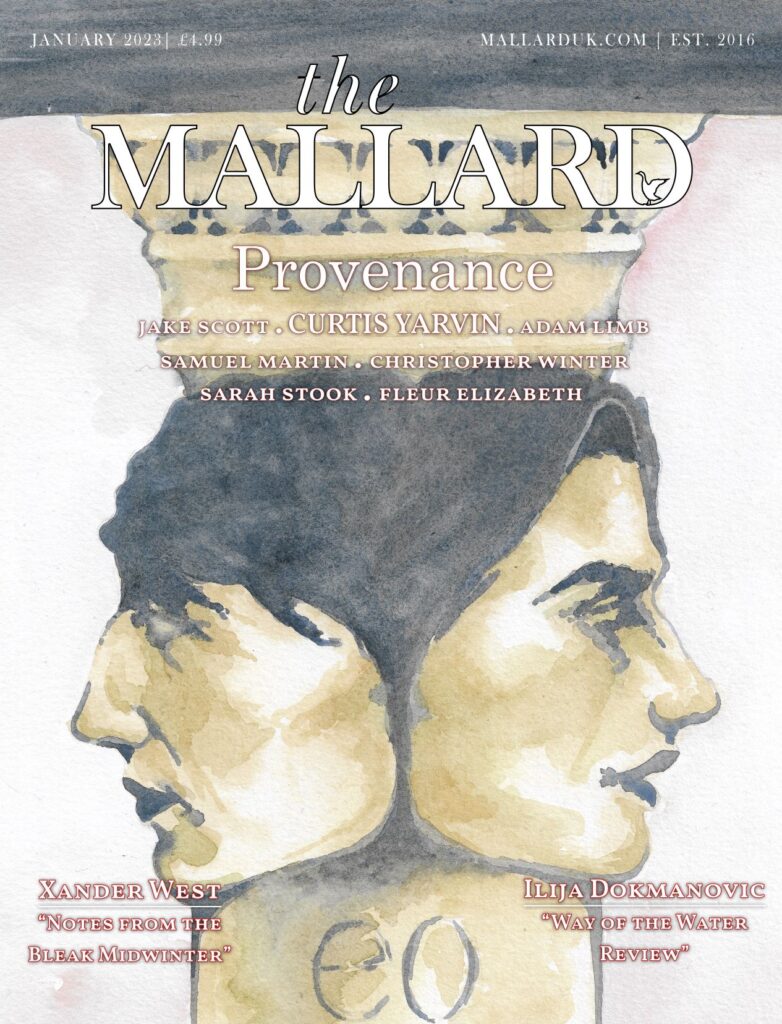In the closing days of May, Boris Johnson came public with a proposition that could be characterised, at the very least, as surprising, especially to us here in Eastern Europe. This proposal was the creation of a new “European Commonwealth”, which would encompass the UK, Ukraine, Poland, the Baltic States and possibly, later on, Turkey. The Italian daily Corriere della Sera quoted that this commonwealth would provide an alternative to the EU, aimed at countries that are united by their distrust of Brussels and the German response to Russian aggression. While this proposal didn’t create much public discussion in the mainstream, many in the nationalist and dissident right sphere, including yours truly, were definitely intrigued. Partly due to this idea coming completely out of the blue, but mainly because it echoed the idea of Intermarium.
The promotion of the Intermarium, Międzymorze or “between seas” idea has been a long-term geopolitical project of many nationalist organisations and activists in Eastern Europe, especially in the Baltics and Ukraine. While the details occasionally vary, Intermarium can, in general, be understood as a (con)federation of Central and Eastern European states, such as Finland, the Baltics, Ukraine, Belarus, the Visegrad Four, the states of the Caucasus and some Balkan states. These are countries, which by and large, share three important aspects: geopolitical interests, historical experience as part of the communist world and similar socio-cultural values. The aim of this project is to unite the aforementioned countries into an united bloc, which would be economically, militarily and culturally strong enough to resist both the globalist West and the imperialist East. The final goal would be this bloc becoming both a new pole of power and a new centre for Europe, eventually supplanting the declining Western European states.
This project is not really new, but rather a revival of an old idea, tailored to fit the realities of the modern world. The original idea of the Intermarium federation was the brainchild of Polish marshal and statesman Jozef Pilsudski, whose dream was a recreation of the historical Polish-Lithuanian Commonwealth. It would have served as a basis for a “Third Europe”, countering both Soviet Russia and a revanchist Germany. Pilsudski’s project failed to materialise in the 1920s due to several reasons. Firstly, Soviet Russia proved to be too strong to overcome by the nascent Polish Republic on its own and the creation of a united anti-soviet front was hampered by a disunited Ukraine and several disputes Poland had with its neighbours. Secondly, many of the envisioned constituent states saw, somewhat justifiedly, the project as solely advancing Polish interests and domination in the region. Lastly, Poland itself experienced strong domestic opposition to the idea, mainly from the nationalist camp. There are today, however, several promising indicators that we’ve learned from the mistakes of the past. While there still is bickering stemming from historical grievances, the success of regional cooperation forums, such as the Visegrad Group and the Three Seas Initiative, indicates a positive reception towards increased regional cooperation and integration.
Coming back to the role of the UK, the involvement of HM Government in this region has an interesting and long history, especially in Estonia. After Finland, the UK can be considered to be Estonia’s largest supporter during our War of Independence. In addition to providing significant amounts of material aid (arms, ammunition etc.), the Royal Navy played a crucial role in the fight against the invading Red Army. The 6th Squadron under Rear Admiral Edwyn Alexander-Sinclair not only secured the Estonian coast from any seaborne assault into the rear, but also kickstarted the Estonian Navy by donating two captured Russian vessels. Even today, Estonia honours this contribution, with our naval jack bearing a close resemblance to the Union Jack. Later, during the opening years of the Cold War, MI6 provided extensive support to Baltic anti-communist guerrillas through Operation Jungle. This operation was unfortunately brought down by the betrayal of the infamous communist spy, Kim Philby. Nonetheless, the presence of the UK has been a strong influence over here up to this day, with units of The Welsh and the Queen’s Royal Hussars forming the strongest allied contingent of NATO troops.
Now, I’m not so naive as to claim the UK provided this support out of the kindness of its heart. Like any nation, they were advancing their own geopolitical interests. Indeed the British command was quite perturbed when instead of joining in the assault on Petrograd, the Estonian government decided to consolidate the country’s independence by making peace with Soviet Russia. As in 1918-1920, even today the UK has its own interest in making diplomatic headways into Eastern Europe. But just as before, by virtue of a common foe, our interests seem to align. The reason for our animosity towards Russia has different roots, Estonia’s being nationalism and the UK doing it, most likely, out of a desire to spread “freedom and democracy”. Nonetheless, I would still consider the enemy of my enemy to be my friend, at least to some extent. Historically and out of pure necessity, Estonians have fought alongside powers which may not have had our national survival as a priority.
Why would have Johnson proposed something like this new commonwealth? Britain’s geopolitical position in the post-WWII era can be easily summed up with the adage calling the British Isles a permanent floating aircraft carrier of the United States, destined to play second fiddle to the new preeminent global power. We must keep in mind that the early warning systems at RAF Fylingdales are solely for the benefit of the US, not the residents of Yorkshire. While the Falklands campaign was an unprecedentedly sovereign move from the UK, common wisdom would still consider it as an exception that reinforces the rule. Whether it was Iraq, Yugoslavia or Afghanistan, Britain has answered the call of the US, not vice versa. 40 years on, the rusted wreck of the General Belgrano at the bottom of the South Atlantic might occasionally invoke some pride and nostalgia in an ageing boomer, but after that, the British canon seems to lack such definitive moments. Johnson, I believe, had also noticed this lack of assertiveness.
A post-Brexit Britain, not burdened by the collective bargaining requirements of the EU, has the position and opportunity to regain some of its international clout and the new alliance proposal is definitely an attempt at that. An important aspect to remember is that this whole project is strongly tied to the war in Ukraine and while much of the EU dithers, the UK has taken a particularly strong stance in support of Ukraine, becoming one of its main supporters. This began already before the Russian invasion, with the “friend of the US”, president Poroshenko being replaced by Zelenskyy, a friend of the UK. Strategically, this move is intelligent and definitely in line with the current goals of a UK wishing to regain its international importance. Increased material and diplomatic support shows not only Ukraine, but also much of Eastern Europe, that Britain is indeed prepared to help while the big players of the EU are hesitant. Conversely, Eastern European states will start seeing the UK as a much more valuable ally. It seems that the Johnson administration, by sidestepping both the US and EU, was actively trying to improve its international standing and expand its sphere of influence into countries that may already have been somewhat sceptical of the EU. Whether this was being done to further British strategic and economic interests, spread liberal-democratic ideology, to invoke past glories, or all three simultaneously, remains to be seen.
What has the reaction been like over here in the East then? As mentioned before, the new commonwealth proposal was barely noted in the media over here, but at least in Estonia, it did create discussion in the right-wing nationalist camp. Sharing a common enemy in imperialist Russia and euroscepticism, it can’t be denied that we have aligned interests. Furthermore, we see this proposed framework as a possible stepping stone towards the dream of a modern Intermarium alliance. There are some reservations though. Firstly, just as we in Eastern Europe do not wish to be dominated by the EU or Russia, any such attempt from the UK would be received with equal disdain. Additionally, any form of deepened political, economic and military ties would inevitably lead to an increased socio-cultural influence as well. This might not be a problem automatically, but given the reticence of our national cultural establishment, I am wary. Instead of Morris dances, the UK is exporting liberal progressivism, and aggressively so.
The anglosphere and its establishment have become the vanguard of liberalism in the world. There is much talk of Russian influence in both the West and the Baltics, but the influence of large-scale propaganda campaigns of the liberal West is constantly omitted in the mainstream. The UK government, along with the US, Canada and Germany (to name a few), is funding and supporting NGOs, magazines and events that actively support a left-leaning progressive and anti-national ideology among the Estonian and broader Eastern European population. A very tangible example of this is the UK ambassador, Ross Allen, taking the stage at the US-sponsored Pride event in my home city of Tartu. While Russian imperial ideology is detestable and I wish never to live under it no matter how anti-liberal it is, the prospects for Estonian nationhood as part of the rapidly declining liberal-democratic West are equally low. If the UK would, in this new alliance, focus on strategic geopolitical and military interests instead of ideological exports, we would be more receptive.
To conclude, while Johnson’s proposal of a new European Commonwealth is definitely an interesting prospect for both Eastern Europe and the UK itself, it raises several issues. On one hand, it could prove to be a geopolitical boon to both parties, with the UK re-establishing its influence and Eastern European states moving from a peripheral position towards the core of a new international bloc. The support of an emerging powerful player such as the UK could very well be beneficial in establishing the new Intermarium alliance as a truly viable alternative to the ever-centralising and anti-national EU. However, as of yet there are no signs that this alliance would give a central role to nationalist principles which many Eastern European nations value, especially if led by the current UK political establishment. The Intermarium concept has always stressed nationalism as one of its core tenets and we certainly would not wish to replace EU liberalism with the Anglo variant. Time will tell if this proposition gains any traction and how it will evolve. Johnson’s resignation adds a whole new dimension, and perhaps this whole concept will quickly be forgotten and UK foreign policy will pivot significantly. In any case, these are developments which we should follow closely.




